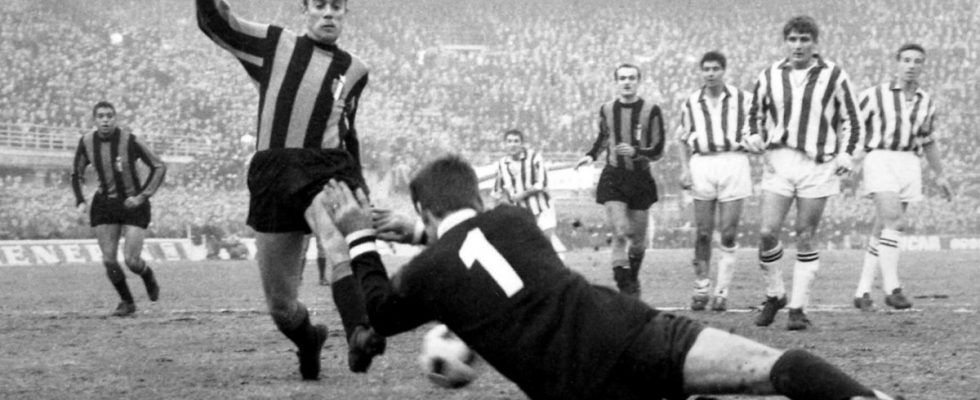At FC Barcelona games, the Spanish radio station Cadena SER was happy to add a scratchy critic from Milan who followed the games on the local TV station: the Spaniard Luis Suárez Miramonte. Listening to him was a pleasure because Luisitoas he was called throughout his life, always spoke openly and frankly about everything.
On his own behalf, too, he liked to speak plainly when he received visitors for lunch in a trattoria in Milan’s Brera district, near the San Siro stadium. “I was already very, very good,” he said. And it’s not just that no one who’s ever seen him play has disagreed. A fact spoke for itself. At the time of his death, which was announced on Sunday and mourned equally in two European peninsulas – the Iberian and the Italian – Luisito Suárez was the only Spaniard in history to have died Ballon d’Or was awarded the Golden Ball for the best player in Europe. Despite Xavi, Iniesta, Casillas.
Suárez won the title in 1960; at a time when European football was dominated by Real Madrid. Born in La Coruña, north-west Spain in 1935, and now deceased at the age of 88, Suárez was a Barcelona player in his day and was so at his peak that he scored in a 1960/61 Inter-Cup match against Zagreb at the Camp Nou achieved what he himself said was Maradonian (or Messianic).
He managed a half-pitch dribble run from the right which laid the foundation for Barcelona to come from 2-0 down. And who helps to understand that FC Barcelona’s sale from the summer of 1961 to Inter Milan is considered one of the biggest mistakes in the club’s history. Although he brought in an unprecedented fee: 25 million pesetas, or 250 million lira, today little more than 200,000 euros, which went towards the expansion of the Camp Nou stadium in Barcelona.
Inter-Idol Karl-Heinz Rummenigge also mourns: “I’ve always admired Luis Suárez.”
For him, whom the great Alfredo Di Stéfano simply called “el arquitecto”, the architect, the change was as much a blessing as it was for the Lombards. Under the leadership of the incomparable Helenio Herrera, “La Grande Inter” was born, the Milan team that won the European Cup in 1964 and 1965. In 1965 Inter also won the World Cup and the Italian championship. In 1964 Suárez also won the European Championship with Spain and it is said that Suárez deserved the Ballon d’Or again that year.
The organizer France Football but presented it to the Scotsman Dennis Law. “A robbery!” Suárez was annoyed years later. This also proves what kind of player he was: France Football had considered establishing a prize for the best player of the decade in the late 1960s. A special Ballon d’Or, so to speak. There would have been only one winning candidate, based on the addition of the scores in the player of the year elections: Luis Suárez, who was “half dancer, half torero” as the legendary Italian journalist Gianni Mura wrote.
“He was a great footballer, with a very high level of intelligence, but also assertive, technically very adept and a goal threat,” said FC Bayern supervisory board member Karl-Heinz Rummenigge Süddeutsche Zeitung with, he also played at Inter (1984-1987) and became an idol there. “I’m grateful to have had the opportunity to meet him personally during my time at Inter Milan. He’s a club icon and that’s how he will be remembered. The Italian football heart never forgets.”
Luis Suárez was a Galician who yearned for the sea all his life – even when he became a hero in Milan.
(Photo: Luca Bruno/AP)
After the end of his active career (1973 at Sampdoria Genoa) Suárez became a coach, including three times at Inter and also at the Spanish association. He won the U21 European Championship title (1986) and led the senior team to the 1990 World Cup in Italy. The country became his home – although his melancholy eyes revealed that he missed nothing more than the smell of the sea in Galicia, the percebes and all the other seafood that he had friends send to Italy. There, people rose from the tables recently when their Luisito came through the door. Because nobody could ever forget that for almost a decade, from 1961 to 1970, he had always offered them a way out. True to the words Helenio Herrera once said: “If you don’t know where to put the ball, give it to Luis Suárez.”

